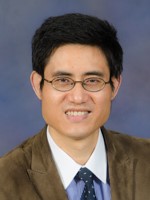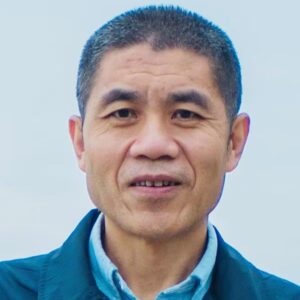Keynote Speakers

Dept. of Computer Science City University of Hong Kong
Federated Continual Learning
Abstract: The goal of federated learning is to preserve data privacy when training Artificial Intelligence (AI) systems, while continual learning is to enable an AI system to acquire new skills without forgetting old skills. To combine the capabilities of federated learning and continual learning, federated continual learning (FCL) arises. But before FCL can enjoy the benefits of both federated learning and continual learning, FCL needs to be able to effectively transfer knowledge across different clients and across various tasks. Current FCL methods mainly focus on avoiding interference between tasks, thereby overlooking the potential of knowledge transfer across tasks learned by different clients in separated time intervals. To address this issue, in this talk, I will present a Prompt-based Knowledge Transfer FCL algorithm, to effectively foster the transfer of knowledge encapsulated in prompts between various sequentially learned tasks and clients.
Biography: Dapeng Oliver Wu received Ph.D. in Electrical and Computer Engineering from Carnegie Mellon University, Pittsburgh, PA, in 2003. Currently, he is Yeung Kin Man Chair Professor of Network Science, at the Department of Computer Science, City University of Hong Kong. His research interests are in the areas of artificial intelligence, FinTech, communications, image processing, computer vision, signal processing, and biomedical engineering.
He received University of Florida Term Professorship Award in 2017, University of Florida Research Foundation Professorship Award in 2009, AFOSR Young Investigator Program (YIP) Award in 2009, ONR Young Investigator Program (YIP) Award in 2008, NSF CAREER award in 2007, the IEEE Circuits and Systems for Video Technology (CSVT) Transactions Best Paper Award for Year 2001, the Best Paper Award in GLOBECOM 2011, and the Best Paper Award in QShine 2006. He has served as founding Editor in Chief of Transactions of Artificial Intelligence, Editor in Chief of IEEE Transactions on Network Science and Engineering, founding Editor in Chief of Journal of Advances in Multimedia, Editor-at-Large for IEEE Open Journal of the Communications Society, and Associate Editor for IEEE Transactions on Cloud Computing, IEEE Transactions on Communications, IEEE Transactions on Signal and Information Processing over Networks, IEEE Signal Processing Magazine, IEEE Transactions on Circuits and Systems for Video Technology, IEEE Transactions on Wireless Communications and IEEE Transactions on Vehicular Technology. He has served as Technical Program Committee (TPC) Chair for IEEE INFOCOM 2012. He was elected as a Distinguished Lecturer by IEEE Vehicular Technology Society in 2016. He is an IEEE Fellow.

Dept. of Computer Science City University of Hong Kong
Modelling and Solution Set Constraints in MOEA/D
Abstract: Most multi-objective evolutionary algorithms are to generate a finite set of solutions to approximate the Pareto optimal solution set (PS) in the decision space and the Pareto front (PF) in the objective space. In other words, these algorithms provide a zero-order approximation to the PS and PF. In this talk, I will first introduce basic ideas behind MOEA/D algorithms and explain how to use MOEA/D to learn a math model to approximate the PS and PF. In some engineering design areas, it is desirable or required that different optimal solutions should share some common patterns. Deb’s pioneering innovization methodology aim at addressing this requirement. I will explain our recently proposed concept of “solution set constraints” and show some of our preliminary work on using modelling in MOEA/D to handle these constraints. Our work can be regarded as a new attempt to do “innovization”, and it also provides a new way for defining optimality in multiobjective optimization. It can provide more useful information for supporting interactive multiobjective optimization.
Biography: Qingfu Zhang is a Chair Professor of Computational Intelligence with the Department of Computer Science, City University of Hong Kong. His is an IEEE fellow. His main research interests include evolutionary computation, optimization, metaheuristic, machine learning and their applications. He leads the Optimization and learning Group in CityU. His MOEA/D algorithms have been widely researched in the EMO field and used in industry. He has been listed as a highly cited researcher in computer science for 8 times.
